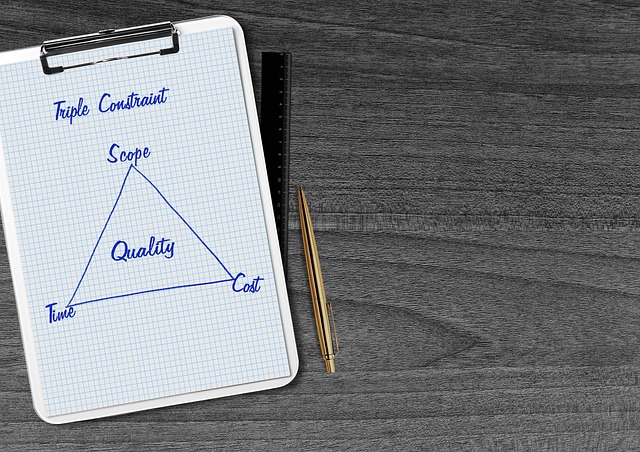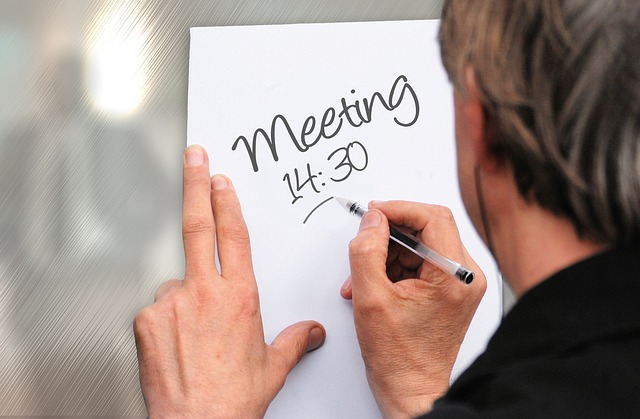
Almost everyone can benefit from improved time management. You’re more likely to accomplish the things you want to do if you have a schedule. There are a lot of people out there that really need to get to work on time management. The following advice will help. Read on and start to learn!
Make use of a timer. If you can’t seem to focus, use a timer and allocate yourself whatever amount of time that is available. Use the timer to schedule regular breaks until the work is done.
Consider using a timer. If you have a difficult time focusing, set a timer for the length of time you are able to work. You can break this time into increments to make it easier and less tedious for yourself.
When it comes to devising your daily schedule, remember to schedule time for unexpected interruptions that are bound to occur. Refrain from taking calls or texts while you work. By planning for these distractions, you’ll stay on schedule.
A calendar is a great tool for managing your time. Many people like the feel of a physical calendar that they can write on. Some people prefer the calendar on their computer or telephone. Using a calender is the best way to manage your daily commitments.
If time management is a challenge to you, get better focus on individual projects. It can be a challenge to do well if you have too many irons in the fire. Refrain from multi-tasking at all times. To help you stay focused concentrate on one task and see it to fruition before beginning another project.
Deadline awareness is critical for those who tend to be late. Procrastinating only lets stress pile up and things get worse from there. If you had kept your deadlines in sight, then it would not have been necessary to drop some projects for a rush job elsewhere.
Prioritize your daily activities. A lot of the time tasks that aren’t important may make your day take too long. When you make a prioritized list, you can determine in advance the amount of time you want to spend on each task. Create a to-do list that is sorted by priority.
Make sure you allow time for interruptions when you are planning your day ahead. You must schedule travel time and a little flex time so that you will be able to realistically accomplish the tasks on your list. You can stay on track if you plan for those interruptions.
If you find you have problems managing your time, evaluate how you use it. Be sure to spend it wisely. Only look at emails or text messages at certain times. In this way, you can avoid wasting time by attending to them as they occur throughout the day.
Put more emphasis on the individual tasks that you have. Multi-tasking is a good way to end up frazzled with a lot of half completed projects. If you do too many things all at one time, it could leave you overwhelmed causing quality to suffer. Take a moment to concentrate your focus and apply yourself strictly to the job at hand before you think about tackling the next one.
When you get up in the morning, plan the whole day out. Write down everything you need to complete and how long you think it should take. A daily schedule is a great way of effectively managing your time.
Plan your day the evening before to help get your time organized. You can either created a detailed schedule or a basic to-do list. Once you get these things onto paper it can take some stress out of your daily life so you can concentrate better.
Keep in mind that you can’t get everything done. In fact, it’s almost impossible. Only a fifth of your activities actually produce the bulk of your results. Get done those things that you must and eliminate those things that do not serve your goals.
Consider the way you currently use time. Use time deliberately and carefully. Avoid distractions like emails or Facebook. Always paying attention to them can be distracting, and ends up diverting your attention away from more important things.
Do harder tasks earlier. You should do the tasks that are more difficult first. This can alleviate stress, allowing you to move on to mundane tasks. By getting the stressful stuff out of the day, you can have a better end to your day.
When you get up in the morning, take a little time to map out your day. Grab paper and a pen, then compile a list that details everything that must get done, and the time needed to complete the task. A daily schedule allows you to use your time wisely.
Write down what needs doing every day, and put it in order of priority. Then it’s simply a matter of starting with the first task on your list and working your way down. Try to keep the physical list with you on your person, so that if you forget what you need to be working on, you can simply glance at the list to remind yourself.
Done Early
Make use of a diary for increasing your time management capabilities. This will allow you to see what you are doing on paper. Look back at these notes in your diary, and see what you can do differently.
Tackle the more difficult tasks early. The ones that take more time or that are more difficult should be done early on. This allows you to make your way to boring tasks later in the day. If you get the hard stuff done early, then the rest of your day can be more enjoyable, with less stress.
Become more mentally prepared for your daily tasks. It is easy to get down, but if you work on remaining positive, you can get just about anything done. Just let yourself know that you only have to focus for a little time and then allow yourself to do so.
Try taking local classes on time management. These can provide useful information on how to better deal with time. Some businesses offer time management for their employees since it may help them succeed. If you aren’t offered these classes at your work location, look online for cyber classes or check our your local library.
Always carry around a to-do list. This can remind you of a lot as necessary. There may be tasks that you need to finish that cause you emotional stress. This may make you forget what your next task is. The list will help you get back on track.
Try keeping a diary about the time tasks use. For about a week, make note of all your daily activities. Include how long each task took you to complete. Then read your diary to get a better idea of where you should improve.
Reward yourself only after you have accomplished what you set out to do. Make sure this is done after you finish though, so it does not interrupt your task. You should reward yourself often but only if it doesn’t interfere with your longer term goals.
Make your schedule by listing important things first. This is ideal for organizing each day. Consider the important things you need to finish each day. Be sure they’re at the beginning of the schedule. Then you’ll be able to work on down to the things that aren’t as important.
Put your most important tasks at the top of your to-do list. Trying to do too much at once causes the quality of your work to suffer. It will result in you not finishing anything. You will do better if you take your time with each task.
For effective time management, figure out how much time is required to complete each job. Skip on unimportant tasks and concentrate on those that are more important. You should devote only the necessary effort to complete a task. Save your best work for the stuff that matters, and you’ll be happier with what you accomplish.
Divide your task list into four separate quadrants. Put “important” and “not important” labels on the columns. Label the horizontal rows urgent and not urgent. The quadrant that is not urgent and not important should get not more than 5-10% of your time. Spend the majority of your time on the important and urgent items. Make certain you have a bit of time for those things that aren’t urgent but are still important to you.
Time management is difficult, especially is you do not like scheduling. The quicker you begin this learning process, the faster your time management skills will lead to success. Follow the tips presented here to begin using your time wisely starting now.
Give yourself a little wiggle room on large projects or tasks. Emergencies and distractions in the middle of a big task can really eat up your time. This can make the time allotted for the job at hand far too short. Give yourself a buffer so you are prepared for them.


